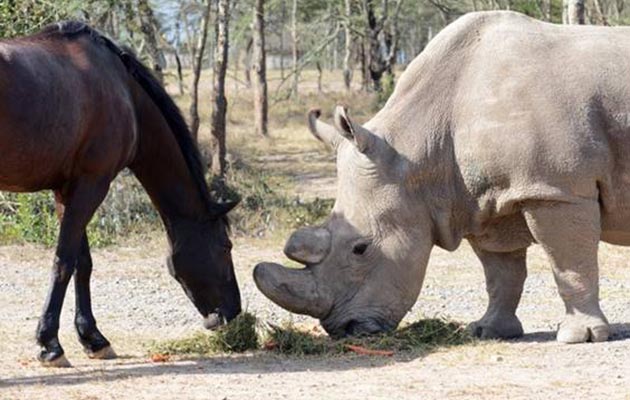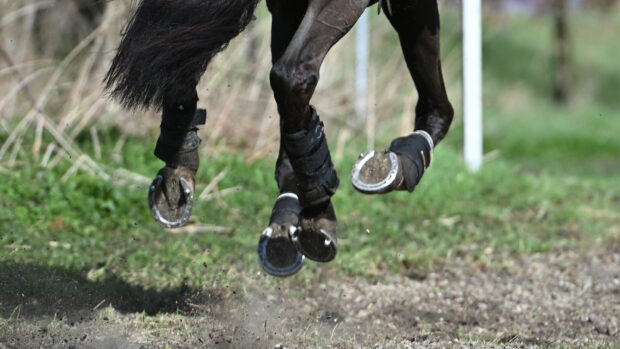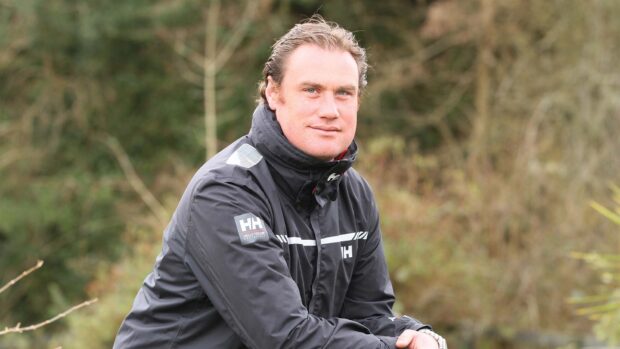It’s long been well known that former racehorses can excel in second careers – although thwarting poachers and protecting rhinos may not be the first that comes to mind.
But at a charity in South Africa, four thoroughbred are doing just that.
Anna Mussi, orphanage manager at Rhino Revolution, told H&H the charity’s aim is to protect rhinos and pangolins, whose numbers have plummeted owing to poaching; rescuing, rehabilitating and re-releasing into the wild as undomesticated individuals.
Anna is from Britain and worked as a work rider in racing before she went to South Africa on a gap year over 10 years ago. She worked for a company offering horseback safaris, then for a wildlife vet, then moved to Rhino Revolution.
“It was a gap year gone wrong – or gone right!” she said.
Anna explained that the four horses came to the wildlife reserve with their former trainer when she retired and moved from Zimbabwe, and the charity came up with the idea of riding them on patrol, to deter poachers and monitor the rhinos.
“Over the last five years, five white rhinos have been rehabilitated here; they were rescued after their mothers were killed by poachers,” Anna said.
“They were all released into the reserve and they’ve stayed together. What’s really interesting is that the horses have become completely desensitised to them, so we’re able to get quite close, depending on the situation. That means we can monitor behaviour and condition without stressing them out, or affecting them, the way it might if you were in a vehicle or on foot.
“This is hard work and long hours but as a rider, when you’re out on horseback, and ride into a ‘crash’ of rhinos, and spend time with them; it’s very special, phenomenal.”
Anna said the horses have been very effective in preventing poaching; they can cover large areas – and would-be poachers know this – and their size is a visual deterrent. She added: “These thoroughbreds, of all horses, are so good in the bush as they’re so alert; they show me where game is before I see it, and they’re very intelligent, and think for themselves. They’re not flighty, once they’re used to things; they’re brilliant.
“There’s something about thoroughbreds; they’re so dependable and I love them.”
There is also hope that the number of rhinos may increase next year as one of the females has mated successfully with an outside bull.
Continues below…

Horse befriends ‘last’ rhino in real-life odd couple
Sudan is thought to be the last male northern white rhino on the planet, but rather than being alone he’s

Photographer surprised by rare spotted zebra
‘It was my third time visiting Maasai Mara and I’ve never seen anything like it before’

Subscribe to Horse & Hound magazine today – and enjoy unlimited website access all year round
“So far, the group’s dynamics haven’t changed but if she does show signs of pregnancy, the group may change, which would mean the rehab has been entirely successful,” Anna said.
The poaching occurs owing to the use of rhino horn in traditional Chinese medicine, although the horns are also sold as status symbols, because declining numbers of the animals has pushed the value of their horns sky-high.
“Rhino horn is worth more than gold, per gram,” Anna said. “The medicine is just superstition, but now people want a whole horn on the mantelpiece as a status symbol, it’s insane.
“In 2018, one rhino was being killed every eight hours. It’s still one every nine or 10 hours, despite the fact the population is going so low. The percentage of rhinos being killed is still increasing; it’s very sad.”
We continue to publish Horse & Hound magazine weekly during the coronavirus pandemic, as well as keeping horseandhound.co.uk up to date with all the breaking news, features and more. Click here for info about magazine subscriptions (six issues for £6) and access to our premium H&H Plus content online.




